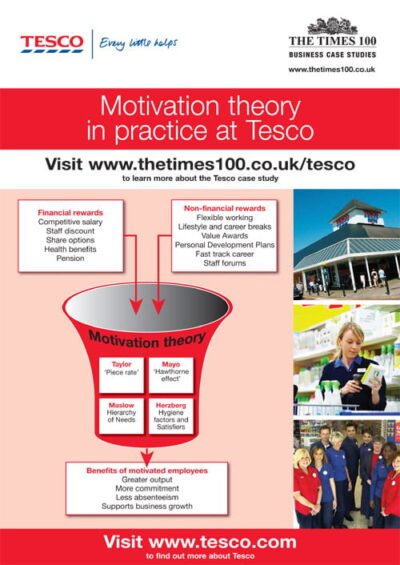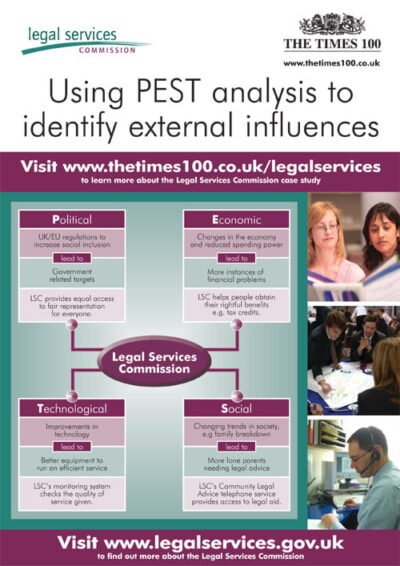In recent years, the concept of sustainable business strategy has gained significant traction across various industries. This approach integrates environmental, social, and economic considerations into the core operations of a business, aiming to create long-term value while minimising negative impacts on society and the environment. The shift towards sustainability is not merely a trend; it reflects a growing recognition that businesses must adapt to the changing expectations of consumers, investors, and regulatory bodies.
As climate change, resource depletion, and social inequality become increasingly pressing issues, companies are compelled to rethink their traditional business models and embrace sustainability as a fundamental aspect of their operations. Sustainable business strategies encompass a wide range of practices, from reducing carbon footprints and waste to promoting fair labour practices and community engagement. These strategies are not only about compliance with regulations or responding to consumer demand; they represent a proactive approach to risk management and innovation.
By embedding sustainability into their strategic frameworks, businesses can enhance their resilience, improve their reputation, and ultimately drive profitability. This article delves into the importance of sustainable business strategies, their key components, successful examples, challenges faced during implementation, the role of stakeholders, methods for measuring success, and the future landscape of sustainable business practices.
Summary
- Sustainable business strategies are essential for long-term success and viability in today’s business environment.
- Implementing sustainable business strategies can lead to cost savings, improved brand reputation, and increased customer loyalty.
- Key components of a sustainable business strategy include environmental stewardship, social responsibility, and economic prosperity.
- Successful examples of sustainable business strategies include companies that have reduced their carbon footprint, implemented fair labour practices, and invested in renewable energy.
- Challenges in implementing sustainable business strategies include resistance to change, lack of resources, and the need for cultural shifts within the organisation.
The Importance of Sustainable Business Strategies
The significance of sustainable business strategies cannot be overstated in today’s global economy. As consumers become more environmentally conscious and socially aware, they increasingly favour brands that demonstrate a commitment to sustainability. This shift in consumer behaviour has profound implications for businesses; those that fail to adopt sustainable practices risk losing market share to competitors who prioritise ethical considerations.
Furthermore, investors are increasingly scrutinising companies for their environmental, social, and governance (ESG) performance. A strong sustainable strategy can enhance a company’s attractiveness to investors, leading to better access to capital and potentially higher valuations. Moreover, sustainable business strategies contribute to risk mitigation.
Climate change poses significant risks to supply chains, operations, and overall business continuity. By adopting sustainable practices, companies can identify vulnerabilities within their operations and develop strategies to address them. For instance, businesses that invest in renewable energy sources may reduce their exposure to fluctuating fossil fuel prices while also contributing to a reduction in greenhouse gas emissions.
Additionally, regulatory pressures are mounting globally; governments are implementing stricter environmental regulations and sustainability reporting requirements. Companies that proactively embrace sustainability are better positioned to navigate these regulatory landscapes and avoid potential penalties.
Key Components of a Sustainable Business Strategy

A comprehensive sustainable business strategy typically comprises several key components that work synergistically to promote sustainability across all facets of the organisation. One fundamental element is the establishment of clear sustainability goals and objectives. These goals should be specific, measurable, achievable, relevant, and time-bound (SMART), allowing businesses to track progress and make necessary adjustments over time.
For example, a company might set a target to reduce its carbon emissions by 30% within five years or achieve zero waste in its manufacturing processes by a specific date. Another critical component is stakeholder engagement. Businesses must actively involve various stakeholders—including employees, customers, suppliers, and local communities—in the development and implementation of their sustainability strategies.
This engagement fosters a sense of ownership and accountability among stakeholders while also providing valuable insights into the expectations and concerns of different groups. For instance, a company might conduct surveys or focus groups with employees to gather feedback on potential sustainability initiatives or collaborate with suppliers to identify opportunities for reducing environmental impacts throughout the supply chain. Additionally, integrating sustainability into the company’s culture is essential for long-term success.
This involves training employees on sustainable practices, encouraging innovative thinking around sustainability issues, and recognising and rewarding contributions to sustainability efforts. When sustainability becomes ingrained in the organisational culture, it is more likely to be prioritised at all levels of decision-making.
Examples of Successful Sustainable Business Strategies
Numerous companies have successfully implemented sustainable business strategies that not only benefit the environment but also enhance their competitive advantage. One notable example is Unilever, a multinational consumer goods company that has made sustainability a core part of its business model through its Sustainable Living Plan. This initiative aims to decouple the company’s growth from its environmental impact while increasing its positive social impact.
Unilever has set ambitious targets such as halving its greenhouse gas emissions from its products by 2030 and improving the health and well-being of over one billion people by 2025. The company’s commitment to sustainability has resonated with consumers, resulting in strong sales growth for its sustainable product lines. Another exemplary case is Tesla, which has revolutionised the automotive industry by prioritising sustainability through electric vehicles (EVs) and renewable energy solutions.
Tesla’s mission is to accelerate the world’s transition to sustainable energy, and it has achieved this by producing high-performance electric cars that appeal to environmentally conscious consumers. The company’s innovative approach not only addresses climate change but also positions it as a leader in the rapidly growing EV market. Tesla’s success demonstrates how aligning business objectives with sustainability can lead to significant market opportunities.
Patagonia is another brand that exemplifies successful sustainable practices. The outdoor apparel company has built its reputation on environmental activism and ethical sourcing. Patagonia’s commitment to using recycled materials in its products and its initiative to donate 1% of sales to environmental causes have garnered a loyal customer base that values corporate responsibility.
The company’s transparency about its supply chain practices further enhances its credibility among consumers who seek authenticity in brand messaging.
Challenges and Obstacles in Implementing Sustainable Business Strategies
Despite the clear benefits of adopting sustainable business strategies, companies often encounter various challenges during implementation. One significant obstacle is the initial cost associated with transitioning to more sustainable practices. For many businesses, especially small and medium-sized enterprises (SMEs), investing in renewable energy sources or sustainable materials can require substantial upfront capital.
This financial burden may deter some companies from pursuing sustainability initiatives despite the long-term cost savings they may yield. Additionally, there can be resistance to change within organisations. Employees accustomed to traditional ways of operating may be hesitant to embrace new practices or technologies associated with sustainability efforts.
This resistance can stem from a lack of understanding about the importance of sustainability or fear of job displacement due to automation or process changes. To overcome this challenge, companies must prioritise education and communication about the benefits of sustainability initiatives while fostering an inclusive environment where employees feel empowered to contribute ideas. Another challenge lies in measuring the impact of sustainability initiatives effectively.
Many businesses struggle with quantifying their environmental and social performance due to a lack of standardised metrics or frameworks for assessment. Without clear metrics, it becomes difficult for companies to demonstrate progress or justify investments in sustainability initiatives. Developing robust measurement systems is crucial for tracking success and making informed decisions about future sustainability efforts.
The Role of Stakeholders in Sustainable Business Strategies

Stakeholders play a pivotal role in shaping and influencing sustainable business strategies. Their interests and concerns must be considered throughout the development and implementation processes for these strategies to be effective. Engaging stakeholders allows businesses to gain insights into societal expectations while fostering collaboration that can lead to innovative solutions for sustainability challenges.
Customers are perhaps one of the most influential stakeholder groups when it comes to driving sustainable practices. As consumer preferences shift towards more ethical and environmentally friendly products, businesses must respond by aligning their offerings with these values. Companies that actively seek customer feedback on sustainability initiatives can better understand what resonates with their target audience and tailor their strategies accordingly.
Employees also serve as critical stakeholders in the pursuit of sustainability. Their engagement is essential for fostering a culture of sustainability within the organisation. When employees feel involved in sustainability efforts—whether through participation in green teams or contributions to corporate social responsibility initiatives—they are more likely to champion these values within their work environments.
Furthermore, companies that prioritise employee well-being as part of their sustainability strategies often experience higher levels of job satisfaction and retention. Investors represent another key stakeholder group whose influence on sustainable business strategies is growing rapidly. With an increasing focus on ESG criteria among investors, companies must demonstrate their commitment to sustainability not only for ethical reasons but also for financial viability.
Engaging with investors on sustainability issues can lead to enhanced access to capital as well as improved reputational standing in the marketplace.
Measuring the Success of Sustainable Business Strategies
Measuring the success of sustainable business strategies is essential for understanding their impact and guiding future efforts. However, this task can be complex due to the multifaceted nature of sustainability itself. Companies often employ various metrics and frameworks to assess their performance across environmental, social, and economic dimensions.
One widely used framework is the Global Reporting Initiative (GRI), which provides guidelines for organisations on how to report their sustainability performance transparently. By adhering to GRI standards, companies can communicate their progress on key sustainability indicators such as energy consumption, waste generation, water usage, and social impact metrics like employee diversity or community engagement efforts. Another approach involves using life cycle assessment (LCA) methodologies that evaluate the environmental impacts associated with all stages of a product’s life—from raw material extraction through production and use to disposal or recycling.
By conducting LCAs, businesses can identify areas for improvement within their operations while making informed decisions about product design and sourcing. Additionally, qualitative assessments such as stakeholder surveys or interviews can provide valuable insights into perceptions of a company’s sustainability efforts. Gathering feedback from customers, employees, suppliers, and community members allows organisations to gauge their effectiveness in meeting stakeholder expectations while identifying areas for enhancement.
The Future of Sustainable Business Strategies
The future of sustainable business strategies appears promising as more organisations recognise the importance of integrating sustainability into their core operations. As global challenges such as climate change intensify, businesses will increasingly be called upon not only to mitigate their environmental impacts but also to contribute positively to society at large. Technological advancements will play a crucial role in shaping the future landscape of sustainable business practices.
Innovations such as artificial intelligence (AI), blockchain technology, and renewable energy solutions are expected to revolutionise how companies operate sustainably. For instance, AI can optimise supply chain logistics by reducing waste while enhancing efficiency—ultimately leading to lower carbon emissions. Moreover, collaboration among businesses will become increasingly vital in addressing complex sustainability challenges that transcend individual organisations’ capabilities.
Partnerships between companies across industries can facilitate knowledge sharing and resource pooling while driving collective action towards common goals such as reducing plastic waste or promoting circular economy principles. As consumer awareness continues to grow regarding environmental issues, brands that prioritise transparency will likely gain a competitive edge in the marketplace. Companies that openly communicate their sustainability efforts—alongside measurable outcomes—will foster trust among consumers who seek authenticity in brand messaging.
In conclusion, sustainable business strategies are poised not only as a response to current societal demands but also as an opportunity for innovation and growth in an evolving economic landscape characterised by increasing scrutiny on corporate responsibility.
A sustainable business strategy is crucial for companies looking to reduce their environmental impact and improve their long-term success. One way to achieve this is by sourcing products ethically and responsibly. Sourcing agents can play a key role in helping businesses reduce costs while maintaining high ethical standards. In a related article on sourcing from China, the benefits of using sourcing agents to ensure sustainable practices are highlighted. By working with these agents, companies can make informed decisions that benefit both their bottom line and the planet.
FAQs
What is a sustainable business strategy?
A sustainable business strategy is a plan of action that aims to create long-term value for a company while considering its environmental, social, and economic impact. It involves integrating sustainable practices into all aspects of the business, from operations to supply chain management.
Why is a sustainable business strategy important?
A sustainable business strategy is important because it helps companies reduce their environmental footprint, improve their reputation, and attract environmentally conscious consumers. It also helps businesses adapt to changing regulations and market demands, leading to long-term success.
What are some examples of sustainable business strategies?
Examples of sustainable business strategies include using renewable energy sources, reducing waste and emissions, implementing fair labor practices, and sourcing materials from ethical suppliers. Companies may also invest in sustainable innovation and product development.
How can a company implement a sustainable business strategy?
Companies can implement a sustainable business strategy by conducting a thorough assessment of their current practices, setting clear sustainability goals, and integrating sustainable principles into their business operations. This may involve training employees, engaging with stakeholders, and measuring and reporting on sustainability performance.
What are the benefits of a sustainable business strategy?
The benefits of a sustainable business strategy include cost savings through efficiency improvements, enhanced brand reputation, access to new markets and customers, and reduced risk of regulatory non-compliance. It can also lead to increased employee satisfaction and retention.
 Tesco A3 ePoster Edition 15 "Motivation theory in practice at Tesco"
Tesco A3 ePoster Edition 15 "Motivation theory in practice at Tesco"  Legal Services Commission A3 ePoster Edition 15 "The advantages of centralisation"
Legal Services Commission A3 ePoster Edition 15 "The advantages of centralisation"  Tarmac A3 ePoster Edition 15 "Developing a Human Resource strategy"
Tarmac A3 ePoster Edition 15 "Developing a Human Resource strategy"  Parcelforce A3 ePoster Edition 14 "Using the marketing mix to drive change"
Parcelforce A3 ePoster Edition 14 "Using the marketing mix to drive change"  Tesco A3 ePoster Edition 18 "Visions, values and business strategies"
Tesco A3 ePoster Edition 18 "Visions, values and business strategies"  Legal Services Commission A3 ePoster Edition 13 "Using PEST analysis to identify external influences"
Legal Services Commission A3 ePoster Edition 13 "Using PEST analysis to identify external influences"  Building a multi-utility business (PDF)
Building a multi-utility business (PDF)  Foreign Commonwealth Office A3 ePoster Edition 15 "Meeting business needs through workforce planning"
Foreign Commonwealth Office A3 ePoster Edition 15 "Meeting business needs through workforce planning" 